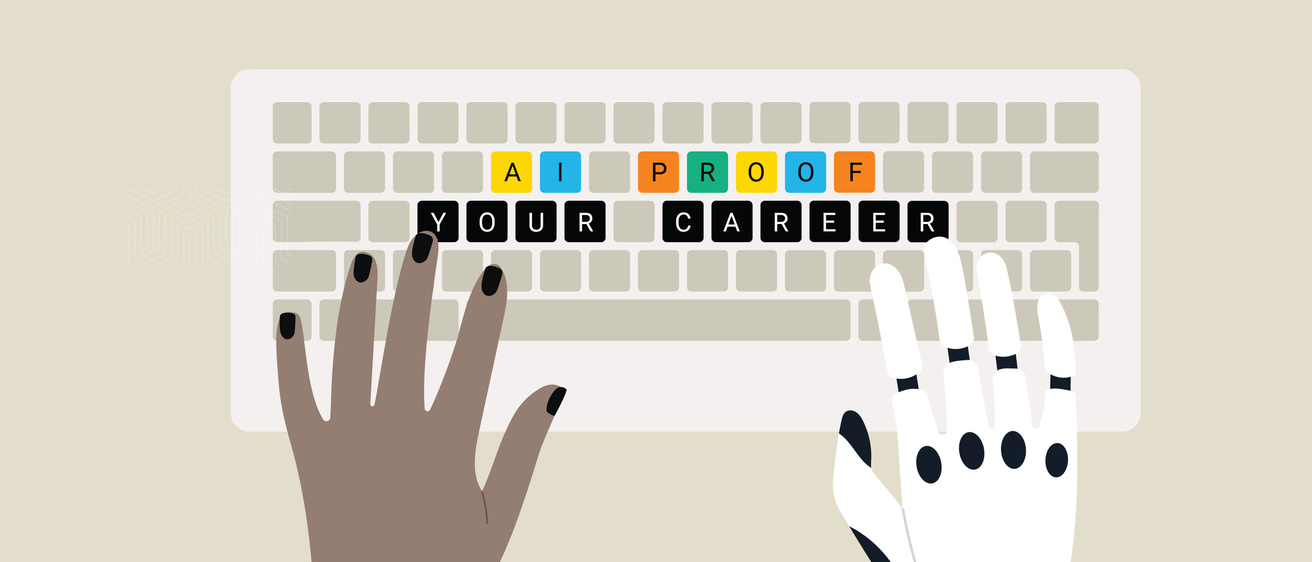Is Chat Generative Pre-Trained Transformer, better known as ChatGPT, coming for your job? After all, the large language model can find data sets and summarize them. It can write code, poems, and sales pitches. It can plan your next vacation and even diagnose medical conditions.
300 million jobs could be affected by latest wave of A.I., according to Goldman Sachs.
Here are four tips to stay ahead:
1: Don't ignore it
The technology is here, and every day it’s proving its capabilities in fields as wide ranging as marketing, medicine, accounting, and law.
“You can’t fight this,” says Ramji Balakrishnan, Ernst & Young Professor of Accounting. “It’s like saying you’re going to push the tide back.” Facing the facts means taking time to understand how your job may be affected.
“It’s unfortunate that a lot of routine, labor-intensive, and repetitive jobs will eventually be replaced by A.I. or A.I.-powered robotics,” says Patrick Fan, Henry B. Tippie Excellence Chair and professor of business analytics. As society demands more productivity, the economy rises to the challenge, supplanting less efficient labors with ones that are more, Fan goes on to explain. In some cases, that means replacing humans with labor-saving bots.
2: Adapt to work with A.I.
“New technology is always scary,” says Beth Livingston, Ralph L. Sheets Associate Professor of Industrial Relations. “This is not the
first new technology that has come, nor will it be the last, but if you can approach A.I. as a tool instead of something that could upend
your whole life, it makes it feel like something manageable.”
In most cases, A.I. technology will only eliminate or change parts of a profession rather than doing away with them entirely, posits Livingston, who is currently a co-principal investigator on a National Science Foundation grant researching how automation will affect clerical work. It’s incumbent for professionals to learn as much as they can about it—and harness it for their own purposes.
“Learn to surf the wave and become adaptable, and you’ll be able to leverage this technology,” Balakrishnan says. He recommends that professionals keep an open mind and learn how the technology works, especially the A.I. tools that are commonly used in their professions.
Some may even be surprised that leveraging this technology makes their jobs more enjoyable, since it can help reduce the time spent on
monotonous or tedious parts of a job. Consider how A.I. can simplify the process of accounting to ensure disclosures are appropriate
or compliance reports are filed, Balakrishnan says.
3: Embrace lifelong learning
Learning to adapt to A.I. may mean investing in formal educational upskilling in areas like prompt engineering, says Fan. It’s critical to understand how to manage, interpret, and analyze data produced by A.I. systems.
Even Tippie faculty are engaging in continuous learning to work with A.I. and machine learning. Ashish Tiwari, the Henry B. Tippie Research Professor of Finance, says that he learned to work with Bayesian machine learning methods to aid his academic research about improving performance benchmarking and the evaluation of hedge funds. “It helps to significantly reduce the errors in terms of performance evaluation and helps improve predictions around fund failure,” he says.
4: Lean in to your differentiator: Your humanity
There’s at least one thing that chatbots don’t have that people do—and that’s humanity. At the end of the day, A.I. are tools to augment or
support jobs, Fan says. They cannot make ultimate decisions or be held responsible for them.
“We as human beings have to be the decision-makers,” Fan says. “We are responsible for every decision we make.”
People must be in charge of how to use the information and content that A.I. systems like ChatGPT create, and they have to be responsible for the ethics of the tool, when it comes to bias, discrimination, and objectivity, for instance.
Livingston also recommends that professionals “… recognize what computers have yet to be able to do, which is capture human ingenuity, create new things from nothing, and build relationships with others.” Ultimately, she suggests focusing on the parts of your profession where you, in your humanity, can add value.
That’s something that technology can’t replace… at least not yet.
GO DEEPER
A.I.-Proof Your Career
Webinar with Patrick Fan and Beth Livingston
Watch
This story appeared in the Fall 2023 issue of Tippie Magazine.
